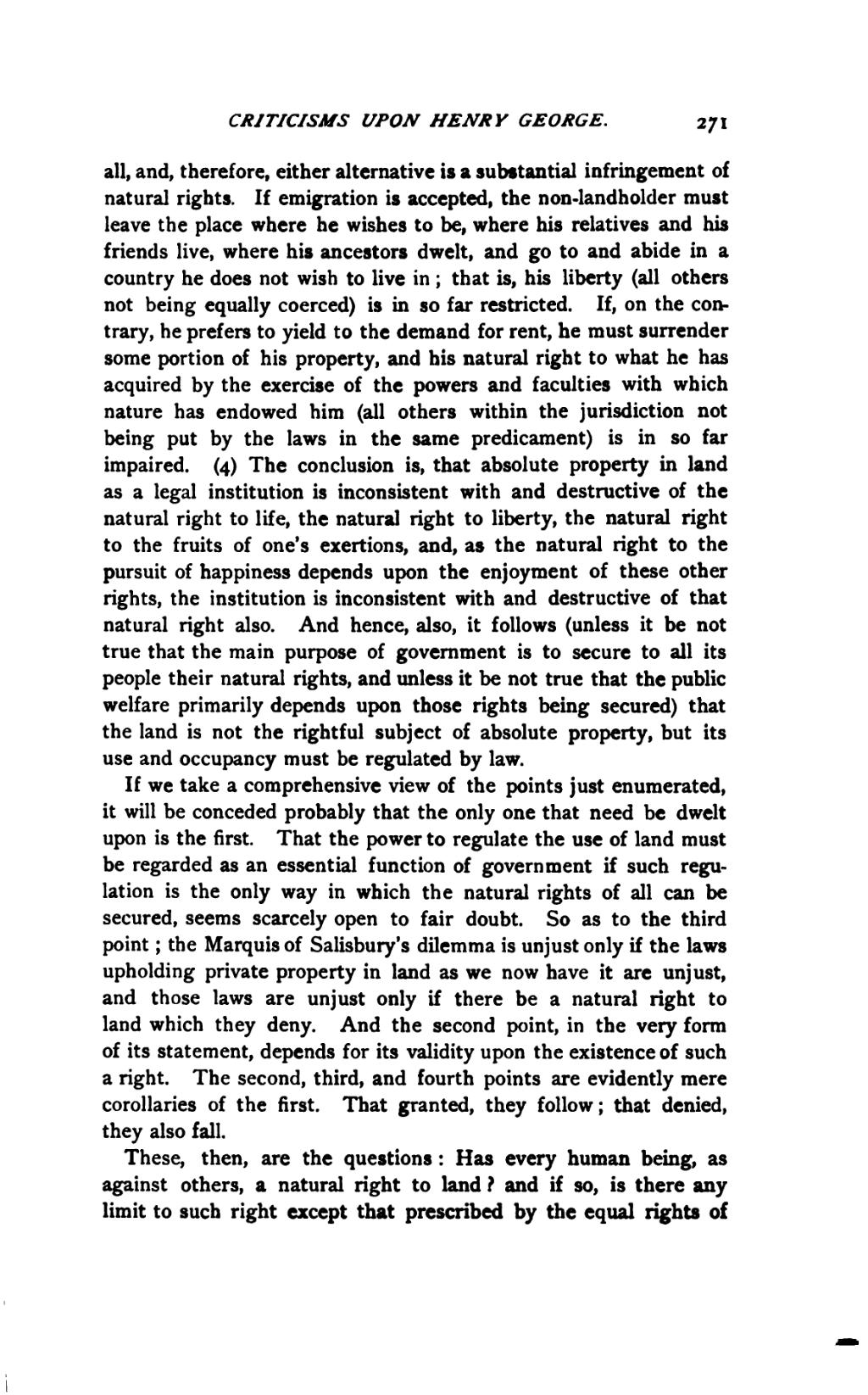all, and, therefore, either alternative is a substantial infringement of natural rights. If emigration is accepted, the non-landholder must leave the place where he wishes to be, where his relatives and his friends live, where his ancestors dwelt, and go to and abide in a country he does not wish to live in; that is, his liberty (all others not being equally coerced) is in so far restricted. If, on the contrary, he prefers to yield to the demand for rent, he must surrender some portion of his property, and his natural right to what he has acquired by the exercise of the powers and faculties with which nature has endowed him (all others within the jurisdiction not being put by the laws in the same predicament) is in so far impaired. (4) The conclusion is, that absolute property in land as a legal institution is inconsistent with and destructive of the natural right to life, the natural right to liberty, the natural right to the fruits of one’s exertions, and, as the natural right to the pursuit of happiness depends upon the enjoyment of these other rights, the institution is inconsistent with and destructive of that natural right also. And hence, also, it follows (unless it be not true that the main purpose of government is to secure to all its people their natural rights, and unless it be not true that the public welfare primarily depends upon those rights being secured) that the land is not the rightful subject of absolute property, but its use and occupancy must be regulated by law.
If we take a comprehensive view of the points just enumerated, it will be conceded probably that the only one that need be dwelt upon is the first. That the power to regulate the use of land must be regarded as an essential function of government if such regulation is the only way in which the natural rights of all can be secured, seems scarcely open to fair doubt. So as to the third point; the Marquis of Salisbury’s dilemma is unjust only if the laws upholding private property in land as we now have it are unjust, and those laws are unjust only if there be a natural right to land which they deny. And the second point, in the very form of its statement, depends for its validity upon the existence of such a right. The second, third, and fourth points are evidently mere corollaries of the first. That granted, they follow; that denied, they also fall.
These, then, are the questions: Has every human being, as against others, a natural right to land? and if so, is there any limit to such right except that prescribed by the equal rights of
